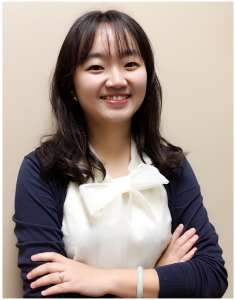2020 Mentored Investigator Grant Recipient — Yilun Deng, PhD
Project Summary
Although immunotherapies have achieved enormous success in multiple types of cancer, ovarian cancer is not one of them. Ovarian cancer is the leading cause of death among gynecological cancers, and patients respond poorly to current standard treatments. Therefore, effective therapies are urgently needed. Immunotherapies work by boosting the immune system’s ability to recognize and eliminate cancer cells. Interleukin-2 (IL-2) is a naturally produced factor that boosts immunity and is, therefore, a tempting target for cancer immunotherapy. However, IL-2 not only activates anti-tumor T cells that are the front-line soldiers to eliminate cancer cells, but also activates regulatory T cells (Treg), a brake system that suppresses immunity. Therefore, IL-2 has not achieved much success in cancer treatment. Our lab studies a novel IL-2 complex (IL-2c) that reportedly selectively only activates anti-tumor T cells without increasing detrimental Treg. Our data show that IL-2c produces the best tumor immunity and treatment responses in any mouse ovarian cancer model we have tested so far. We now propose studies to define IL-2c mechanisms of action against ovarian cancer. Our preliminary data show that IL-2c has a dual effect. It improves anti-tumor immunity through a previously unappreciated effect on specific T-cell stem cells, which generate more and better anti-tumor T cells. These T-cell stem cells have been reported to associate with better outcome in patients after immune checkpoint blockade therapy in other types of cancer, but its role in OC has not been previously explored. On the other hand, we found that IL-2c simultaneously and entirely unexpectedly inhibits the Treg brake on immunity. We will use various mouse models we have available in the lab to further explore the mechanism of IL-2c in regulating these two diverse populations. These novel aspects further allow IL-2c to work more effectively with FDA-approved immunotherapies that alone are ineffective against ovarian cancer. Understanding these mechanisms and defining effective treatment combinations will improve ovarian cancer immunotherapy and treatment responses, possibly improving survival and pointing to curative strategies.
Bio
Dr. Yilun Deng is currently a postdoctoral research fellow in Dr. Tyler Curiel’s lab in the Department of Medicine at the University of Texas Health - San Antonio (UTHSA). After five years of medical training at Guangzhou Medical University in China, she graduated as “Outstanding Graduate of the Year” with a Bachelor of Medicine, the equivalent of a US Doctor of Medicine degree. In graduate school at the UTHSA, she studied cancer biology and characterized the function of a novel tumor suppressor gene, TMEM127. As a post-doc, she now studies cancer immunology and the use of selective IL-2 complexes as a novel immunotherapy for the treatment of ovarian cancer. She has received training grants from the Cancer Prevention and Research Institute of Texas during both her graduate and postdoctoral training. She has also received multiple awards including Outstanding Abstract and Travel Award from the Endocrine Society, 1st place SNAP presentation at the San Antonio Postdoctoral Research Forum, and 1st place poster at the UTHSA Department of Medicine research day.
